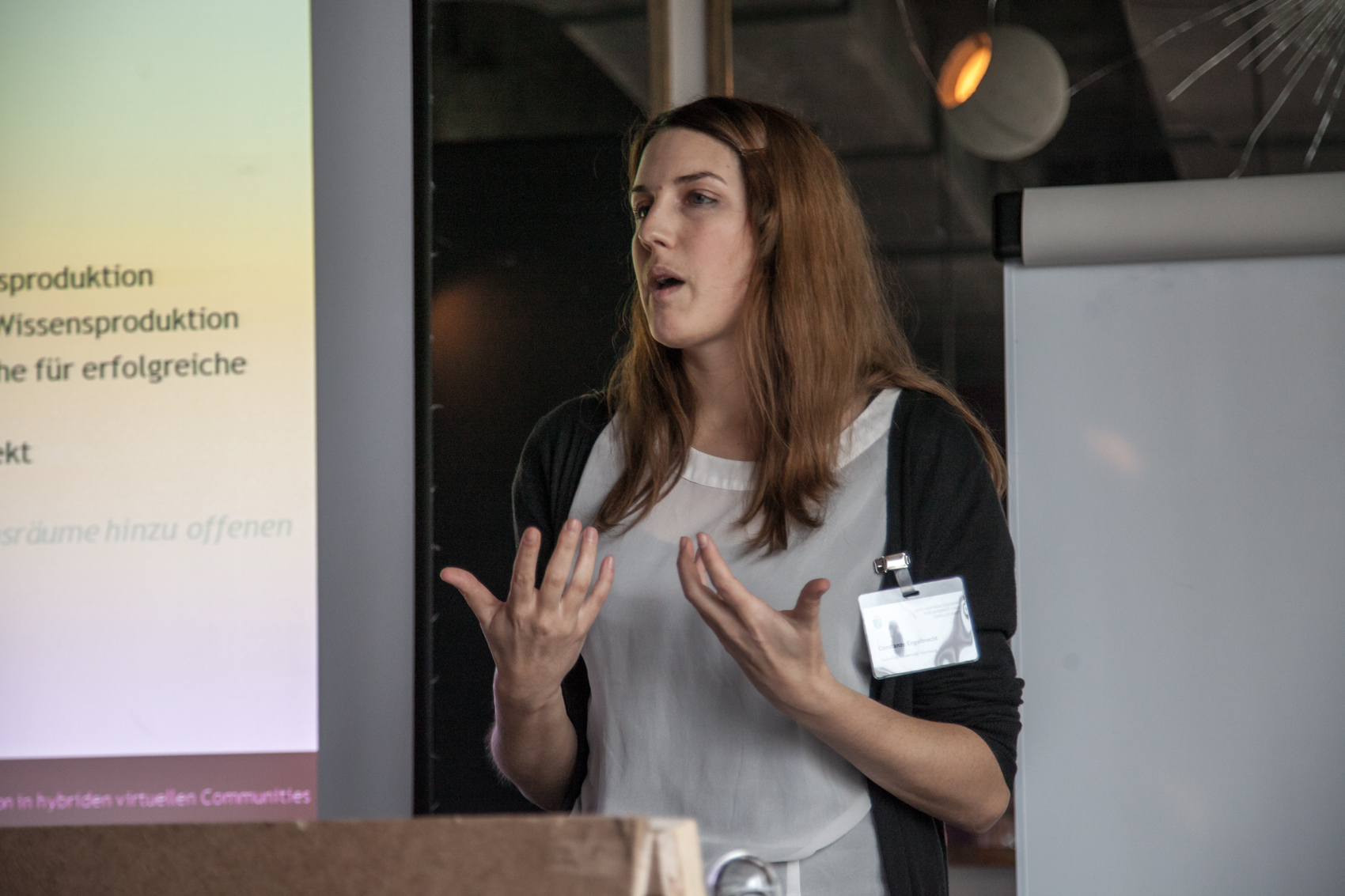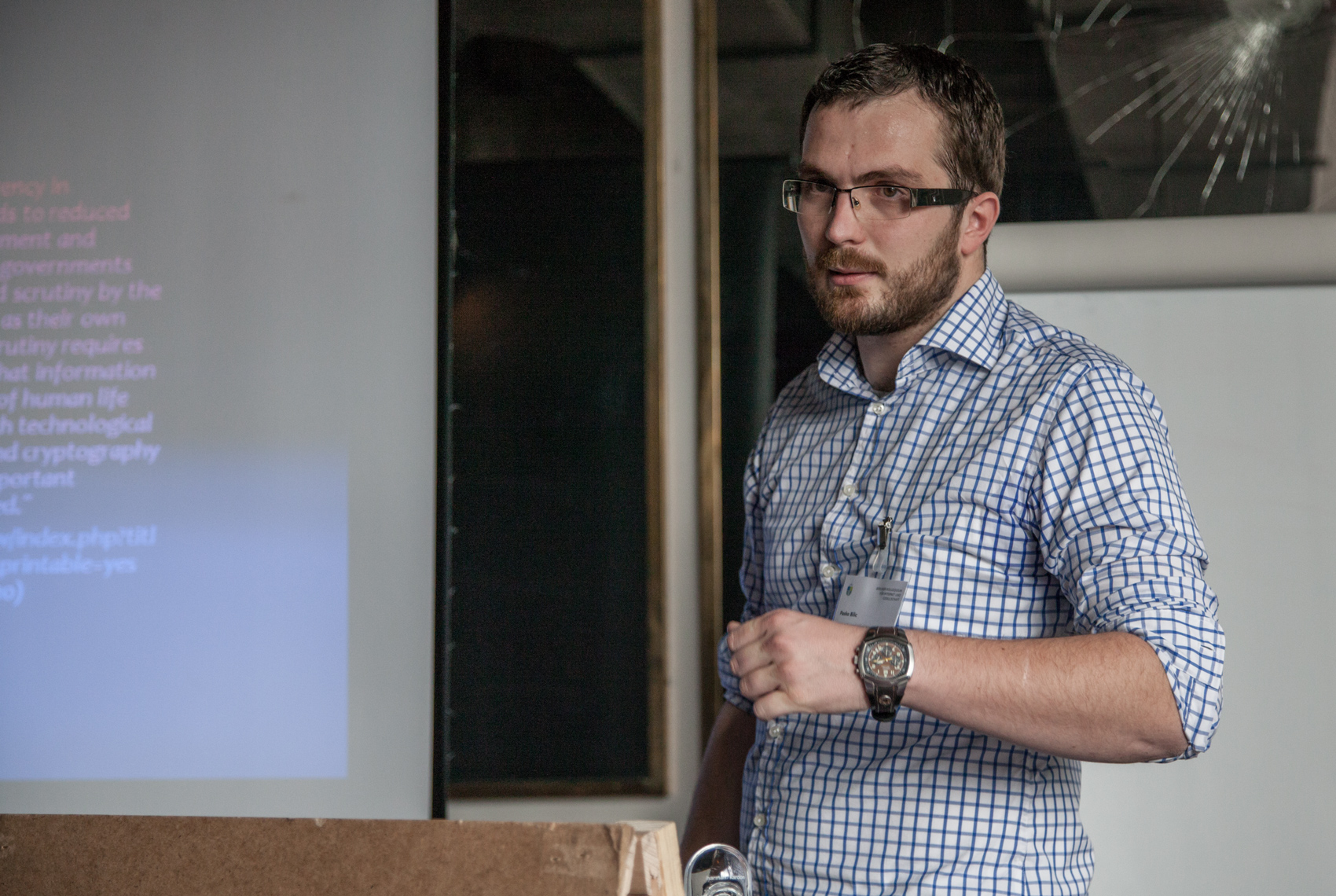Making sense of our connected world
1st Berlin Colloquium – Open Science is an umbrella term
Open Science is an umbrella term
Last thursday the Humboldt Institute for Internet and Society invited early stage researchers to its colloquium at the HomeBase close to the Alexanderplatz in Berlin. One of the workshops addressed Open Science – which according to Cornelius Puschmann, who moderated the workshop (and blogged about it here), is more than just open access to research publications. The three presenting workshop panelists subsequently showed that the umbrella term ‘Open Science’ embraces a wide range of aspects that knowledge production and dissemination in the digital age has to face.
Overcoming institutional borders
Constanze Engelbrecht, from the HafenCity University in Hamburg, started out by presenting her research on so-called knowledge ecologies in the virtual sphere. The Internet and the social web enables hybrid communities that produce knowledge collaboratively. They are hybrid because their members consist of both, laymen and experts. A so-called ‘quasi-anonymity’ makes collaboration on eye level possible. Even though the members of these communities do not share a common physical space, they do share a certain cultural lifeworld.
Constanze did not specifically talk about scientific knowledge production but rather digital communities of practice (for example a cooking community). Nevertheless, her presentation shed light on new forms of knowledge production that can very well do without institutional borders. The questions appear how science could overcome rigid institutional borders; how scientist could for example use specialized social networks to collaborate or include non-professional knowledge (e.g. citizen science).
Changing the information flow
The second panelist, Pasko Bilic from the University of Zagreb, presented his research on emerging communication structures in new media systems. His research on WikiLeaks and Wikipedia addressed two different agenda setting principles: While WikiLeaks sets an agenda, Wikipedia follows a mass media agenda. Nevertheless, Wikipedia resets the information flow and remediates publicly available information. According to Pasko, these two projects significantly altered public communication structures and transformed the sphere of public communication. From a science-perspective, the question appears if Wiki-like forms of scientific publication could become of importance in the future; if a publication can be never really finished but always in process (just as a Wiki-article). Such novel forms of making knowledge available would also demand alternative ways to measure their impact – an aspect that was addressed by the third panelist, Christoph Lutz from the University of St. Gallen.
An alternative way to measure scientific impact
Christoph Lutz does research on altmetrics, alternative ways of measuring scientific impact. As far as Christoph is concerned, scientific impact is not a question of long-winded and elitist peer reviews of scientific journals but can also be measured by taking into account references from the social web (for instance views, likes, shares or bookmarks). This would allow a faster evaluation of scientific impact. Currently, Christoph develops an alternative impact factor in collaboration with ResearchGate, a social network for scientists. An alternative impact measurement that partly evolves from social media references, however, would need to be carefully chosen in order to prevent a network effect of scientific impact – which is not so uncommon for other content in the social web.
The workshop hinted at the multitude of issues that are a still a bit hidden under the wide umbrella of Open Science. It showed quite plainly the complexity of a transforming knowledge production in the digital age – a complexity that is often swept under the carpet if discussions on Open Science solely address the access to the product of science or, even worse, limit science to the natural sciences. The bottom line of the workshop on Open Science might be as simple as this: There is still a lot to be done and we are just at the beginning.
This post represents the view of the author and does not necessarily represent the view of the institute itself. For more information about the topics of these articles and associated research projects, please contact info@hiig.de.

You will receive our latest blog articles once a month in a newsletter.
Featured topics
The Human in the Loop in automated credit lending – Human expertise for greater fairness
How fair is automated credit lending? Where is human expertise essential?
Impactful by design: For digital entrepreneurs driven to create positive societal impact
How impact entrepreneurs can shape digital innovation to build technologies that create meaningful and lasting societal change.
Identifying bias, taking responsibility: Critical perspectives on AI and data quality in higher education
AI is changing higher education. This article explores the risks of bias and why we need a critical approach.





